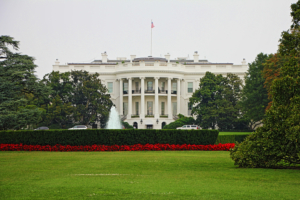By John Ubaldi,
Whatever one thinks of Donald Trump doesn’t matter now. On Friday, January 20, the Trump presidential era will begin.
Donald Trump stunned the world and especially the political establishment by winning the presidency in November. After the election, many people hoped partisan politics would be replaced with a tranquil transition to the new administration.
Right after Trump won, President Barack Obama sought to replicate the courtesies that former President George W. Bush extended to him. “I want to be respectful of the office and give the president-elect an opportunity to put forward his platform and his arguments without somebody popping off in every instance,” Obama said.
Partisan Attacks Begin after Trump’s Election
Sadly, people hoping for a quiet transition were mistaken and any harmony didn’t last. Democrats, independents and many others challenged the legitimacy of Trump’s victory, especially after U.S. intelligence blamed Russia for hacking into the Democratic National Committee in an effort to influence the 2016 presidential election. The discord continued over Trump’s rebuke of civil rights icon Rep. John Lewis (D-GA), who called Trump an “illegitimate” president.
Boycotting the Presidential Inauguration
With tranquility shattered, almost 60 Democratic lawmakers have announced their intention to boycott Trump’s inauguration. Many of these Democrats have said they will protest in Washington and in their home districts.
Congresswoman Alma Adams (D-NC) said, “I cannot in good faith and consciousness pretend to celebrate the inauguration of someone who has spoken so horribly about women, minorities and the disabled.”
But when you boycott an election because of Trump’s past statements, you could be seen as undermining the election results. Hillary Clinton chastised Trump during one of their presidential debates in October when he signaled that he might not accept the election results if she won. “To say you won’t respect the results of the election…that is a direct threat to our democracy,” Clinton said.
Democrats have to be careful. Such actions and statements might play to their base. But many voters who previously twice voted for Obama voted for Trump this time because they were frustrated by Washington’s inertia.
America’s History of the Peaceful Transfer of Power
The peaceful transfer of power has always been the hallmark of U.S. democracy, ever since the first years of the presidency. In 1801, President John Adams peacefully transferred the reins of power to President-elect Thomas Jefferson despite the enmity between them.
In his first inaugural address, Jefferson said, “But every difference of opinion is not a difference of principle. We have called by different names brethren of the same principle. We are all republicans. We are all federalists.”
Members of the Democratic Party need to heed Jefferson’s words.
Trump Fuels the Partisan Divide
Democrats are not the only ones at fault, however. Donald Trump is equally to blame for the acrimonious rancor that followed his election. Trump needs to stop responding to every negative outburst, especially John Lewis’ labeling the Trump presidency as illegitimate.
Far too often Trump uses his favorite social media tool, Twitter, to excoriate those who criticize him. As the new President of the United States, he must accept the challenges, responsibilities and the criticism that come with the office.
If Trump is to unite the country, he must act like the President of all Americans, not just those people who voted for him. Trump needs to behave like the leader of a country and not like a reality TV show star.
A World in Global Chaos
With all the attention focused on public squabbling, the challenges Trump will face have been overlooked to some extent.
First, global security is at its most volatile. The international system the U.S. helped craft and lead after World War II is crumbling.
As President, what Trump says will have real and far-reaching impact. Trump has given vague and contradictory statements on how he would deal with Russian President Vladimir Putin.
At the beginning of this month, for example, Trump held his first news conference as president-elect. Asked about the hacking, Trump stated, “I think it was Russia.” He said Putin “should not be doing it. He won’t be doing it. Russia will have much greater respect for our country when I am leading it than when other people have led it.”
Trump Attacks CIA Director
Then last Sunday, January 15, Trump got into a verbal confrontation on social media with CIA Director John Brennan. Brennan said Trump does not have a “full understanding” of Russia’s power or its threat to global security.
Brennan was responding to Trump’s accusation that the intelligence community was acting like Nazi Germany. Brennan also suggested the president-elect doesn’t understand Russian aggression or why Obama placed sanctions on Moscow for trying to interfere in the 2016 presidential election.
Trump responded with his customary two-tweet message. He criticized the outgoing CIA director’s record. Trump also wondered whether Brennan was responsible for a leaked dossier of unverified allegations and compromising information about Trump when the real estate mogul was in Russia.
Each time Trump responds in this derogatory manner, he further diminishes his already precarious standing with many Americans who did not vote for him. Once he assumes the presidency, his greatest rebuke to his detractors would be to further spur the U.S. economy and restore America’s diminished standing overseas.
Trump’s greatest assets are several of his cabinet nominees. They have distinguished themselves with their breadth of knowledge on crucial issues, especially those who will be national security leaders.
If Trump wants to be successful, he will have to focus more on leading the country here and abroad and less on his detractors.


Leave A Comment
You must be logged in to post a comment.